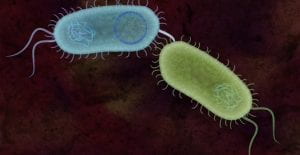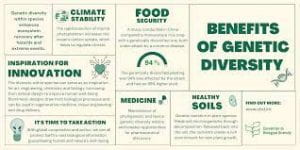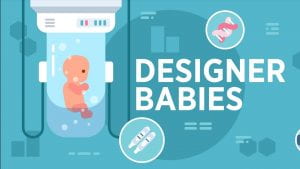Genetic engineering, a fascinating new technology, that could quite literally change the world. As much as using genetic engineering can help humanity in many different ways, it can be detrimental to how we evolve. You might ask, how could it be bad to cure genetically inherited diseases using tech like CRISPR? Why would it be bad to help individuals with health conditions that we can only cure with genetic engineering technologies? Well, you might be surprised at how genetic engineering can be fatal to our society, and our world, so keep an open mind as you read, because I think its a risky concept for us, as humans, to use on other humans.
 Now, I’m not saying that curing genetically inherited diseases, like Down Syndrome, or Cystic Fibrosis, is a bad thing. In fact, it opens up possibilities for us that we never knew existed. We could genetically modify babies, to create populations that are free of ever transmitting, or being affected by genetic diseases, which is quite a fascinating feat. But while genetic engineering can be fascinating, it can also be fatal to us as well. National Geographic says that there is a possibility of bringing back species that were extinct, like the wooly mammoth, which in a way is absolutely amazing, but no one knows what the consequences would be if that became a reality.
Now, I’m not saying that curing genetically inherited diseases, like Down Syndrome, or Cystic Fibrosis, is a bad thing. In fact, it opens up possibilities for us that we never knew existed. We could genetically modify babies, to create populations that are free of ever transmitting, or being affected by genetic diseases, which is quite a fascinating feat. But while genetic engineering can be fascinating, it can also be fatal to us as well. National Geographic says that there is a possibility of bringing back species that were extinct, like the wooly mammoth, which in a way is absolutely amazing, but no one knows what the consequences would be if that became a reality.
CRISPR
An example of genetic engineering technologies, is a tool called CRISPR, standing for Clustered Regularly Interspersed Short Palindromic Repeats. First discovered in 1987 by Osaka University researcher Yoshizumi Ishino, but recently being further researched into, CRISPR is a tool used to cut and replace certain genes in DNA sequences, which ultimately can remove the codes for genetic diseases like Diabetes. However, as how amazing this sounds, using CRISPR can arise many ethical questions, which brings me to my first point. Changing someone’s entire genome without consent, is a heavy matter. This matter could not only include curing diseases through cutting genes and replacing them, but it could escalate to choosing what your baby could look or act like. This is where the fine line between being ethical and being unethical can be crossed.  Changing the phenotypic traits of an individual, could open up a whole other can of worms, that in my opinion, is not what we can handle right now. In simpler words, parents could be able to choose their child’s eye colour, their hair type, the shape of their face, and many more traits that, I think, are what makes each person unique in this world.
Changing the phenotypic traits of an individual, could open up a whole other can of worms, that in my opinion, is not what we can handle right now. In simpler words, parents could be able to choose their child’s eye colour, their hair type, the shape of their face, and many more traits that, I think, are what makes each person unique in this world.
Modifying genes could also cause side effects that weren’t expected, which can be a huge problem. We could literally be creating problems for us, that we may not know how to solve, and things could spiral. New mutations and new diseases could arise, leaving us with no time to figure out how to fix our mistakes.  Unwanted reactions, could cause more unforeseen genetic defects, that would most likely be passed down through to the offspring of the individual.
Unwanted reactions, could cause more unforeseen genetic defects, that would most likely be passed down through to the offspring of the individual.
My most important point that I want to get across, is the fact that genetic engineering can and will limit genetic diversity. Traits that make each and every single person on this Earth unique, have the possibility of being erased, meaning the new populations could literally all be the same person, in a way.  I watch those dystopian-world movies, where everyone follows the same specific rules and has to act and look a certain way, and I used to think that would never even be a possibility for our world, but with technologies like CRISPR, it is very much possible. Obviously, I’m proposing an extreme situation, that this could escalate too, but when we are talking about such impactful technologies and tools like genetic engineering, it is only fair to propose the craziest of outcomes.
I watch those dystopian-world movies, where everyone follows the same specific rules and has to act and look a certain way, and I used to think that would never even be a possibility for our world, but with technologies like CRISPR, it is very much possible. Obviously, I’m proposing an extreme situation, that this could escalate too, but when we are talking about such impactful technologies and tools like genetic engineering, it is only fair to propose the craziest of outcomes.

It could come to a point where it becomes favourable, for example, to have a boy instead of a girl, and instead of leaving that decision to chance, we could literally pick and modify embryos to be what we want them to be, because they’re favourable and beneficial to us at that time. This eliminates every possibility to have a diverse community, and instead plays to the favours of humans. I feel like this concept is really risky, because we start to develop the role of ‘God’ and thats not always a good thing. Genetic engineering could also be used to the advantage of people in power, and could be used for things like warfare. Designer people could become a weapon, instead of someone who we created to give medical benefits to.
On one hand, it could solve/cure genetically inherited diseases, and can give numerous benefits to the organism AND its offspring. Genetic engineering can significantly reduce costs for resources like foods, drugs, and drug production, as well. Genetic engineering can not only cure diseases in humans, but in plants and crops as well. Using genetic engineering, we can increase the crop yields and produce better nutrient composition. We can create organisms that are resistant to pests, which helps with our farming industry. But as I proposed, throughout this post, I think the cons outweigh the pros. Changing/modifying cells and DNA can be used for good, but in my opinion it would change everything, and not for the good. The world could simply become biased towards the certain genes, alleles, and phenotypes of a person, which, I feel, would literally wreak havoc on our society. Changing genes, could also result in new mutations, new defects, and new problems to arise, that humans would not know how to cure/deal with. These new defects could be passed to offspring, being spread across many generations over time, if not cured. It is most definitely risky, and thats why if we were to start using technologies, like CRISPR, we would have to do it the right way, the first time, because we really only get one shot at this. We have to learn how to approach this with care, and not be reckless with this decision, because it will affect the entire world, and its dynamic, positively AND negatively.
WORKS CITED:
Fernández, C. R. (2021, April 13). Eight Diseases That CRISPR Technology Could Cure. Labiotech.eu. https://www.labiotech.eu/best-biotech/crispr-technology-cure-disease/.
Genetic disorders. healthdirect. (n.d.). https://www.healthdirect.gov.au/genetic-disorders.
Hu, J. C. (2017, May 30). 4 Ways This Revolutionary Gene-Editing Tool Could Change the World. NBCNews.com. https://www.nbcnews.com/storyline/the-big-questions/4-ways-revolutionary-gene-editing-tool-could-change-world-n726371.
Nature Publishing Group. (n.d.). Nature News. https://www.nature.com/scitable/definition/genome-43/.
Patra, S., & Andrew, A. A. (2015, October 29). Human, Social, and Environmental Impacts of Human Genetic Engineering. Journal of Biomedical Sciences. https://www.jbiomeds.com/biomedical-sciences/human-social-and-environmental-impacts-of-human-genetic-engineering.php?aid=7264.
Weintraub, K. (2021, May 3). 5 Reasons Gene Editing Is Both Terrific and Terrifying. Science. https://www.nationalgeographic.com/science/article/151203-gene-editing-terrific-terrifying-science.
Designer Babies. (2016). YouTube. https://youtu.be/jAhjPd4uNFY.


Leave a Reply